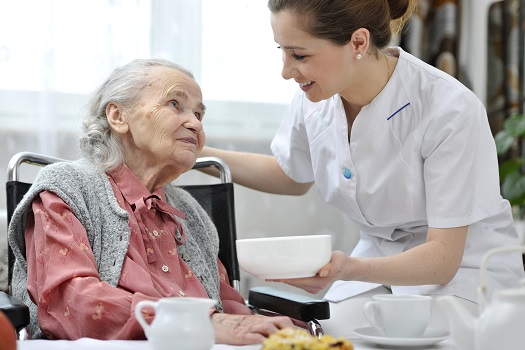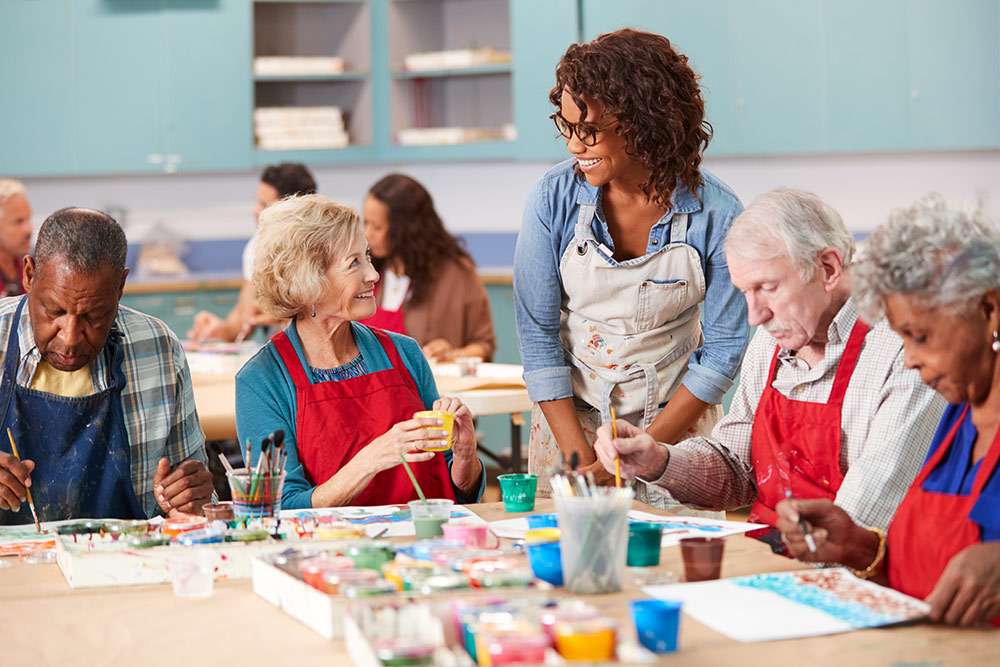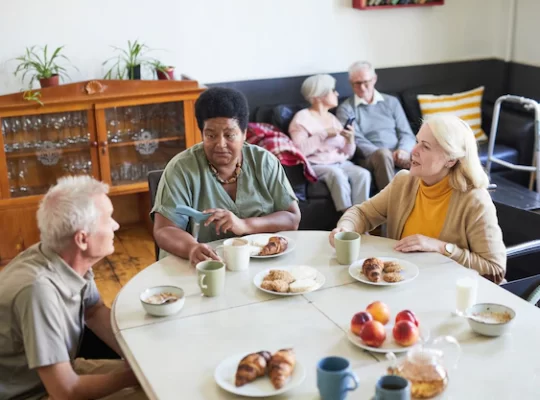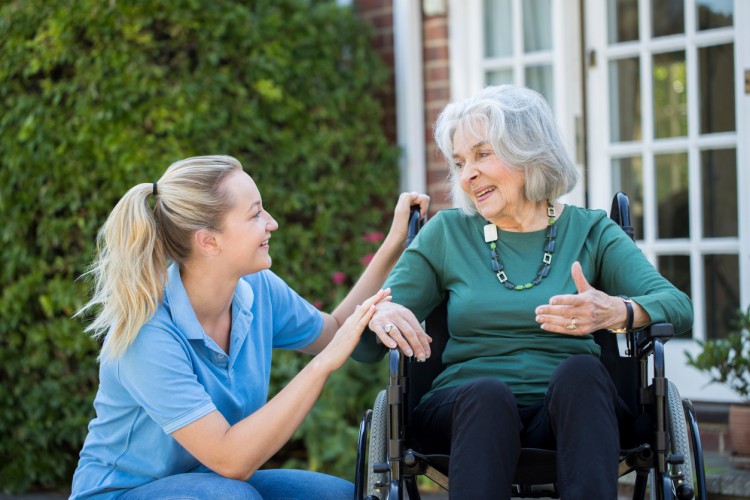Are you worried about whether your loved one is eating well? There are several things you can do to stimulate their appetite.
Eating healthy and drinking enough may be even more important for elders than for a healthy person. Vulnerable individuals are more prone to malnutrition and dehydration. The health of your loved one also depends on proper amounts of nutrition and fluids.
What Can You Do?
- The first step is to make everything surrounding food more appealing.
- Make sure your loved one is sitting or lying down to eat. If necessary, determine a good posture with advice from a doctor or physical therapist.
- It is better to have several small meals a day than three large meals three times a day.
- Create a relaxing atmosphere. Stimulate the senses with the smells and sounds of the kitchen. Use napkins and tablecloths that they have known for a long time.
- Investigate the possibility of compatible cutlery and non-drip cups. An occupational therapist or home care provider can advise.
- Eat together so that you can exercise together.
- Provide colorful food and enough light to eat. Avoid dishes with dense patterns, as they can be confusing.
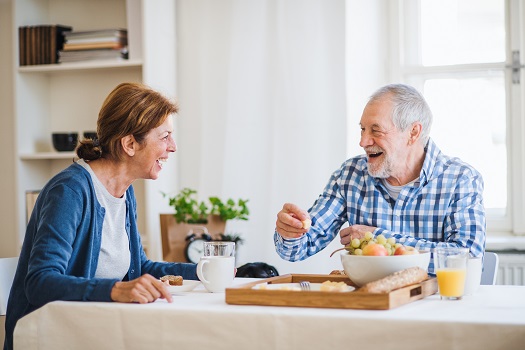
How To Increase Their Appetite?
- If the person has problems chewing or swallowing, consider softer foods such as baked apples, smoothies, or semi-cooked eggs.
- If your loved one is tired, a snack may be better than a full meal at a particular time. Prepare healthy snacks that are easy to consume.
- Eating or drinking something small or sour just before the main meal can stimulate the appetite. For example, think of a piece of toast, an apple, or a glass of orange juice.
- Many people like sweets. So feel free to give them some.
- Ensure that the food is not too hot and that the food stands out on the plate by providing good contrast.
- Give food and drink when they are awake and alert.
- A little sugar or honey can make your loved one’s meal more appealing.
Make it Easy For Them
- Provide only the cutlery necessary for that meal. If you cannot feed them with a knife and fork, try using a spoon. Mash or cut the food into small pieces to make it easier for them to eat with the spoon.
- Give small portions so that the meal does not get cold and does not last too long.
- Use easy-to-hold cutlery, bowls instead of plates, and cups with lids. This will make it easier.
- If cutlery is too cumbersome, prepare snacks that are easy to eat without cutlery. Small pies, nutritious smoothies, sliced sandwiches, fruit wedges, quiches, sausages, etc.
- Make eye contact with your loved one when assisting with meals and giving explanations. Pay attention to the tone of your voice and use your hands, face, and eyes. Holding hands often provides better contact.
- Avoid dry cookies and popcorn, which can cause choking.
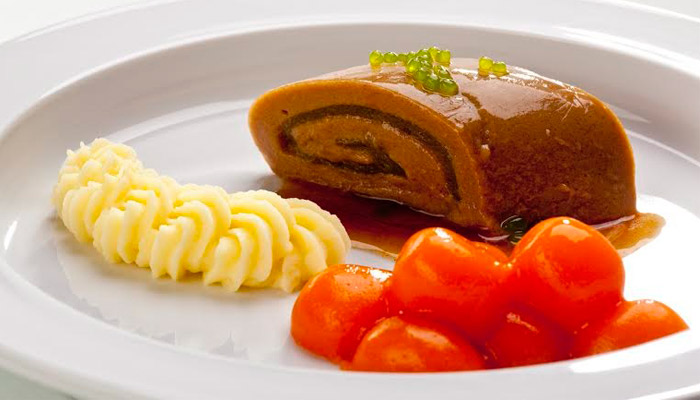
Ensure That They Drink Enough
- Offer a glass of water, milk, or juice with each meal.
- Offer a variety of hot and cold drinks throughout the day.
- If they drink less, offer them fruit, porridge, yogurt, cream, ice cream, etc. This will also help them absorb water.
- Use clear glasses for drinks so that they can see what they are drinking. Give them the glass immediately. Use a brightly colored glass to know whether they’re drinking or not.
Help your loved one eat and drink enough. A stressful environment will not encourage them to eat or drink. If you cannot remedy the situation on your own, feel free to consult a general physician, nutritionist, physical therapist, or speech therapist.

